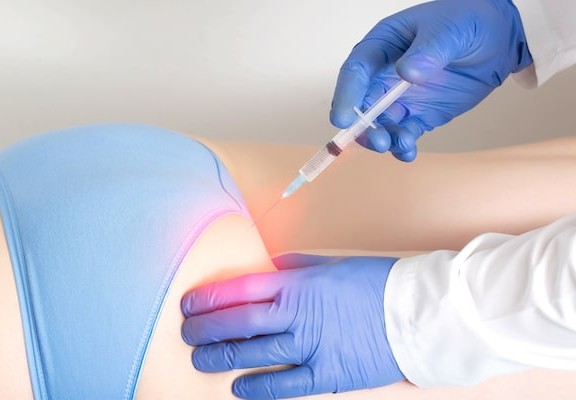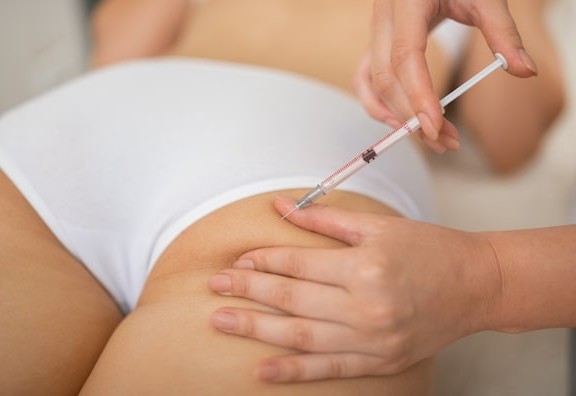Butt Lift
Patients who want to gain a more youthful and lifted look to the butt can have a traditional butt lift to improve the appearance of the buttocks. During the procedure, a surgeon removes excess fat and skin and then repositions the remaining skin to create a more toned and firmer look. Interested in having a buttock lift? If so, keep reading to learn more about this procedure.
Butt Lift – Why It Is Performed and Possible Risks
 As a person ages, the skin can start to become looser which makes it difficult for the skin to go back into place after it is stretched. The result can be sagging skin on the body, and this includes the butt of a person. Someone who is an ideal candidate for a butt lift includes a person who has lost a good amount of weight (and their weight has been stable for six to twelve months) or they are currently at a healthy weight, but they had some fat removed using liposuction and now have loose skin.
As a person ages, the skin can start to become looser which makes it difficult for the skin to go back into place after it is stretched. The result can be sagging skin on the body, and this includes the butt of a person. Someone who is an ideal candidate for a butt lift includes a person who has lost a good amount of weight (and their weight has been stable for six to twelve months) or they are currently at a healthy weight, but they had some fat removed using liposuction and now have loose skin.
While a butt lift can improve the appearance of loose skin, it will not be able to improve the quality of the skin. It is also not recommended for any with a BMI (body mass index) of more than thirty-two or someone who has a plan to lose a significant amount of weight in the future.
Some of the possible risks of a butt lift include a buildup of fluid under the skin that needs to be removed using a needle, poor healing of the wound such as the incision line healing poorly, changes in the sensation of the skin, scarring, and bleeding.
Butt Lift – Procedure and Recovery Examined
A traditional butt lift starts with the administration of anesthetic that keeps the patient comfortable during the treatment. The surgeon will begin with the creation of an incision along the lower back that runs from one side of the hip to the other side of the hip. Then, excess skin that is located below the incision is pulled in an upwards direction in order to lift the buttocks. The surgeon will then remove any extra fat and skin from the targeted area on the butt. In addition, the muscles in the treated area are also pulled tighter in order to provide a look to the butt that is younger, more refreshed and toned in appearance.
In general, the procedure can take anywhere from two to three hours to perform. It can be a longer surgery if the butt lift is performed in combination with another treatment such as a body lift.
Once the procedure is completed, the surgeon will place surgical dressings on the incision in order to protect it during the healing process. There can also be some drains placed under the wound, close to the area of the body where the incision was made, in order to drain and collect any excess fluid or blood that is leaving the body. The drains might be left in place for a period of several weeks after the surgery so the patient will need to learn how to properly empty the drains and care for them while they are in place on the body.
The patient will need to start walking as early as the first day after the procedure in order to keep blood flowing and prevent the formation of any blood clots. Any pain can likely be controlled by pain medication that can be prescribed by the surgeon.
A few days after the surgery, the patient will need to start wearing a supportive garment for a few weeks in order to prevent the buildup of fluid and also provide support for the area where the surgery was performed.
Any scars will gain an improved appearance over time and the look of the scar can be improved with the use of scar cream or silicone sheets.
For the first few months after a butt lift, the patient will need to slowly increase their activity level while still being careful while moving. It is important to avoid any positions that can strain the incision line in order to prevent the wound from reopening. Any questions or concerns about the healing of the incision wound can be addressed during a follow-up visit to the doctor.
Butt Lift Results
The removal of excess fat and skin from the butt gives the buttocks a look that is more youthful and toned in appearance. The results are long-lasting and can even be considered to be permanent in nature. In order to properly maintain the results gained by the butt lift, the patient should maintain a healthy diet and lifestyle while also maintaining a healthy weight. It is also important to follow the post-op instructions provided by the surgeon to help ensure a proper recovery period.




